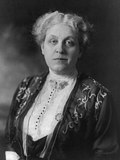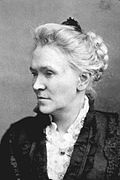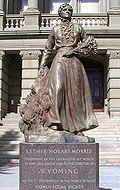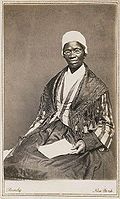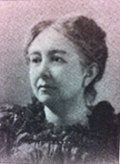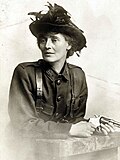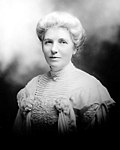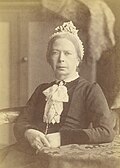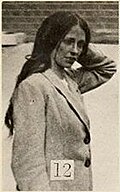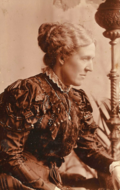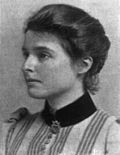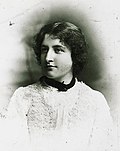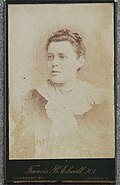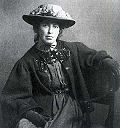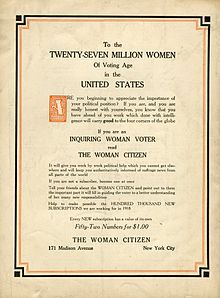
| Part of a series on |
| Feminism |
|---|
 |
|
|
This list of suffragists and suffragettes includes noted individuals active in the worldwide women's suffrage movement who have campaigned or strongly advocated for women's suffrage, the organisations which they formed or joined, and the publications which publicized – and, in some nations, continue to publicize – their goals. Suffragists and suffragettes, often members of different groups and societies, used or use differing tactics. Australians called themselves "suffragists" during the nineteenth century while the term "suffragette" was adopted in the earlier twentieth century by some British groups after it was coined as a dismissive term in a newspaper article.[1][2][3][4][5] "Suffragette" in the British or Australian usage can sometimes denote a more "militant" type of campaigner,[6] while suffragists in the United States organized such nonviolent events as the Suffrage Hikes, the Woman Suffrage Procession of 1913, the Silent Sentinels, and the Selma to Montgomery march. US and Australian activists most often preferred to be called suffragists, though both terms were occasionally used.[7]


